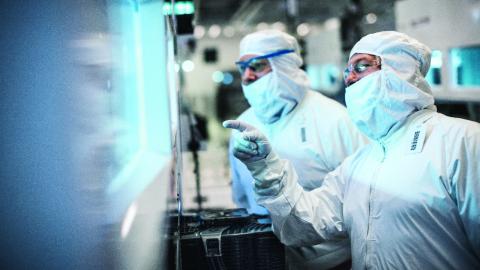Like Samsung, Intel has its own foundry, called Intel Custom Foundry, popularly known as ICF. Having missed the mobile bus, Intel is now cautious enough to not miss the Internet of Things (IoT) market. Intel has made considerable investments in IoT. And now, it has started the 10nm factory for chip fabrication. The company enters trial production stage this quarter of 2016 and the prototype phase is scheduled to begin soon after that. The costs have already been accounted for in the financial outlook for 2016 third quarter.

Moore’s law has stood the test of time. Moore’s law states that the number of transistors in an IC doubles every 18 months. And Intel has been driving this trend since many years. Now, with the start of 10nm factory, Intel continues this trend of achieving denser and denser Integrated Chips. What’s more, Intel has also confirmed that the Canonlake 10nm processors are right on track. According to wccftech, Intel is expected to enter trial production later this year and should be able to ramp up the volume production by the end of 1H 2017. So it’s fair to expect Canonlake by the start of 2H 2017.
14nm was clearly led by Intel. Intel was the chosen foundry when it came to 14nm. The advantages that 14nm tech offers are significant – better gates length, pitches, and SRAM scaling. These advantages are expected to continue even in 10nm. As density rises with 10nm, cost per transistor goes down considerably. For over a decade now, this has been the driving trend for cheaper smartphones with greater capabilities.
Intel has also started shipping the Kaby Lake processors to its customers. Rumors claim that MacBook Pro 2016 will sport the Kaby Lake processor. Given the release schedule for MacBook Pro 2016 happens to be sometime this October and Intel recently announcing availability of Kaby Lake processors, it remains to be seen whether Apple can pack in these processors in a time frame of just 3months.
Intel 10nm may have already missed some orders since Qualcomm’s CEO Mr. Mollenkopf has reportedly told that Qualcomm’s 2017 chip orders will go exclusively to Samsung, including the much-awaited Snapdragon 830. It remains to be seen how Intel 10nm will begin to generate revenues, given the many consolidations and mergers that are currently happening in the Semiconductor industry.
